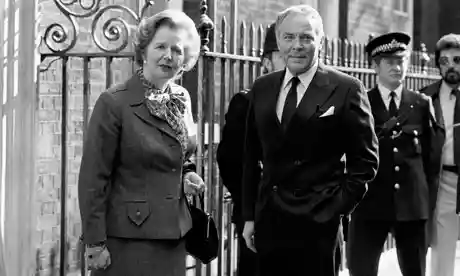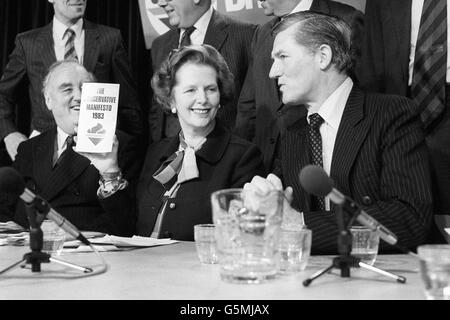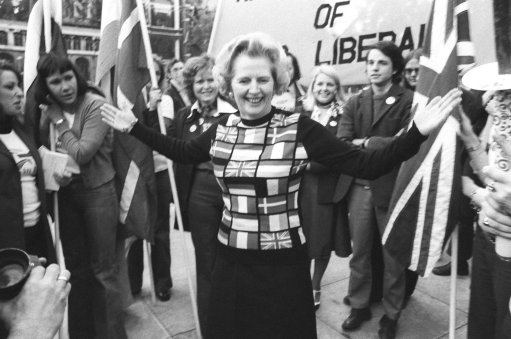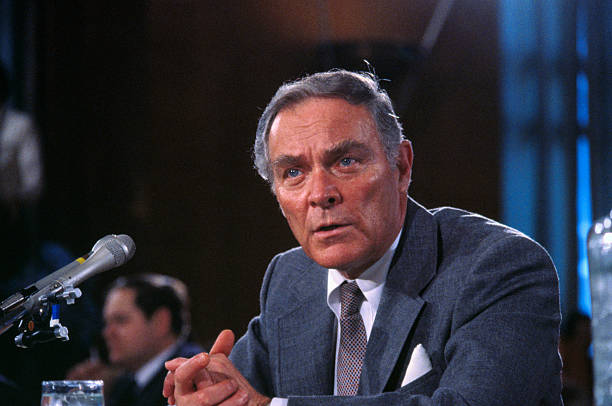Troops Marching Across Falkalnd Terrain, National Army Museum, London, 1982
"They [Thatcher and Galtieri] gambled everything for the Falklands. She won, he didn't. It's as simple as that."
~ Ian Garnderer, The Great Falklands Gamble: Revealed, 2012
The Falklands War was an ever-lasting debate over the sovereignty of the Falkland Islands, one in which diplomacy was doomed. The legacy of this symbolic historical event is still alive today as it forever changed British, Argentine, and even worldwide politics, causing the peak of Thatcherism and the downfall of the Argentine junta in 1983. It is an event to be referred back to while examining the lives of Argentine President Leopoldo Galtieri, British Prime Minister Margaret Thatcher, US Secretary of State Alexander Haig, and many more. Both Argentina and Great Britain wanted to resolve this dispute, but they were unable to reach a consensus, even after the war. Poor US mediation was observed as Haig could not pragmatically negotiate due to both external and internal discrepancies in the US. Beyond that, the mutual distrust and misunderstanding between both countries heavily directed the course of the war and impaired the leaders’ ability to compromise.
"Forty years later, Argentina continues to assert its sovereignty over the islands, and a 2021 survey found that 81 percent of the country believes it should continue to do so. A Malvinas Museum, established in 2014, presents Argentina’s claims to the archipelago. Conversely, in a 2013 referendum, 99.8 percent of Falkland Islanders—whose numbers have doubled and wealth has increased in the years following the war—opted to remain British."
~ Kieran Mulvaney, National Geographic, 1 April 2021

Riots in Buenos Aires, CBS News, 1982
CBS News Coverage of the End of the Falklands War, 1982
"...the Malvinas was a military and political adventure...[it] generated such a scandalous issue in public opinion that the dictatorship closed it under lock and key and considered it a military and political secret...the Armed Forces were politicized by all the coups d'état of the 20th century. This question of improvisation and deprofessionalization was the direct antecedent of what happened in Malvinas. The objective of the dictatorship, first, was not a priority the recovery of the Malvinas but the continuity of the dictatorship."
~ Pablo Vessel, Undersecretary of Human Rights of Corrientes, 2021

Diplomacy in the Falklands, PA Images Archive, 1982
"In the end, responsibility for the Falkland Islands War lays with the numerous historical forces that made diplomacy impossible. If there are lessons to be learned from this conflict, they would seem to relate to how similar impediments to negotiation might be overcome in the future. What more could be done and what might be done differently are questions that will always be worthy of further research. "
~ Joseph Mauro, The Falkland Islands War: Diplomatic Failure in April 1982, 2010
"It was this war upon which Thatcher’s political survival turned. By the end of 1981, her approval rating had fallen to 23%, the lowest ever recorded. By June 1982, her approval rating was at an all-time high of 59%. She became the most acclaimed war leader since Churchill. The war now gave her room to execute her economic strategy; to defy her opponents, inside or outside the Conservative party and government. And it gave her a second general election victory in 1983. No transformation in modern British history has been swifter or more complete. She was in complete command."
~ Victory Bailey, Email Interview, 31 December 2021

General Election 1983 by Homer Sykes, Alamy Stock Photos, 31 May 1983

Thatcher's Success in Britain, PA Images Archive, 1983
"Before the Falklands it was a bit of a joke, that phrase ["The Iron Lady"]. Afterwards it meant something quite real. She was seen as enormously tough and resourceful, someone you would not take on if you were wise. Thatcher was the first woman to lead the country into battle since Elizabeth I...As the first female prime minister of Britain, her success probably helped to make the idea of a female leader more acceptable."
~ Victor Bailey, Email Interview, 31 December 2021
"In the end, Haig did lose his job as a result of the crisis, being forced to resign soon after the outbreak of war. Worry about such a result must have affected his ability to arbitrate, although his memoirs give the impression that he was more than willing to sacrifice his position in the government to try to prevent bloodshed up to the very last moment."
~ Joseph Mauro, The Falkland Islands War: Diplomatic Failure in April 1982, 2010

Alexander Haig, Former Secretary of State, Bettman, Getty Images, 1981
"We must find an element that brings cohesion to society and the country. That element is Malvinas."
~Admiral Jorge Isaac Anaya, 1982